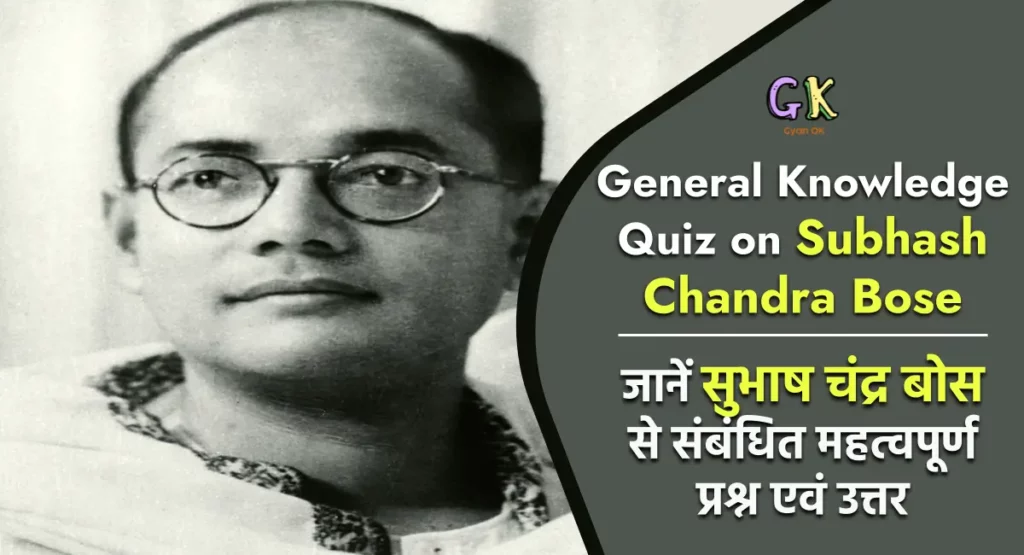Subhash Chandra Bose, a prominent figure in India’s struggle for independence, was a charismatic leader known for his unwavering commitment to liberating the country from British colonial rule. His fearless and determined approach inspired countless individuals to join the fight for freedom. To commemorate his legacy and deepen our understanding of his contributions, we’ve prepared a quiz that delves into the life and times of Subhash Chandra Bose. Join us in exploring the remarkable journey of this iconic leader through our engaging quiz.

General Knowledge Quiz on Subhash Chandra Bose
Subhash Chandra Bose was a clever leader, known for his smart thinking and key role in India’s fight for freedom. He played a big part in movements like Quit India and the Indian National Army, showing strong determination for India’s independence. His actions still inspire people today in the struggle for a free India.
To access your knowledge about Subhash Chandra Bose consider giving the following quiz.
[–MCQ-QUESTIONS-DISPLAY–]
About Subhash Chandra Bose
Subhas Chandra Bose, often referred to as Netaji, was one of the most prominent and dynamic leaders in the Indian independence movement against British colonial rule. His life, marked by courage, determination, and an unwavering commitment to India’s freedom, left an indelible mark on the nation’s history.
Born on January 23, 1897, in Cuttack, a town in the eastern part of British India (present-day Odisha), Subhas Chandra Bose hailed from a middle-class family. His father, Janakinath Bose, was a prominent lawyer, and his mother, Prabhavati Devi, was a devout and influential figure in his life.
From an early age, Subhas Chandra Bose displayed remarkable intellectual prowess and a deep sense of nationalism. He excelled in his studies and was deeply influenced by the teachings of Swami Vivekananda and the Indian National Congress (INC) leader Bal Gangadhar Tilak.
Bose pursued higher education in England, where he studied at Cambridge University and later at the prestigious Indian Civil Service (ICS) in 1919. However, his commitment to India’s independence soon led him to give up his promising career within the British administrative system. He returned to India and plunged headlong into the freedom struggle.
In the early 1920s, Bose joined the INC and quickly rose through the ranks due to his charismatic leadership and fiery speeches. He became a prominent voice for complete and immediate independence from British rule, earning the moniker “Netaji” (meaning “Respected Leader”) from his followers.
One of the most defining moments in Subhas Chandra Bose’s early political career was his election as the President of the INC in 1938 and 1939. His two-year tenure as INC President was marked by his resolute demand for “Purna Swaraj” (complete independence) and his call for mass mobilization. However, differences with the party’s leadership, primarily led by Mahatma Gandhi, led to his resignation from the post in 1939.
The outbreak of World War II in 1939 provided Bose with a unique opportunity to advance the cause of India’s independence. He believed that the war presented a moment when British vulnerability could be exploited. Disguising himself, Bose escaped house arrest in Calcutta in 1941 and embarked on a perilous journey across Europe and Asia to seek international support for India’s independence.
During this time, he sought the backing of Axis powers, Germany and Japan, and established the Indian National Army (INA) comprising Indian prisoners of war and civilian volunteers. Bose’s leadership of the INA and the Azad Hind Radio broadcasts to India captured the imagination of the masses and furthered the demand for freedom.
